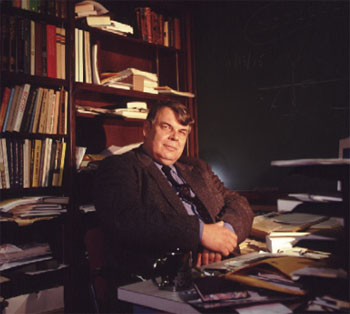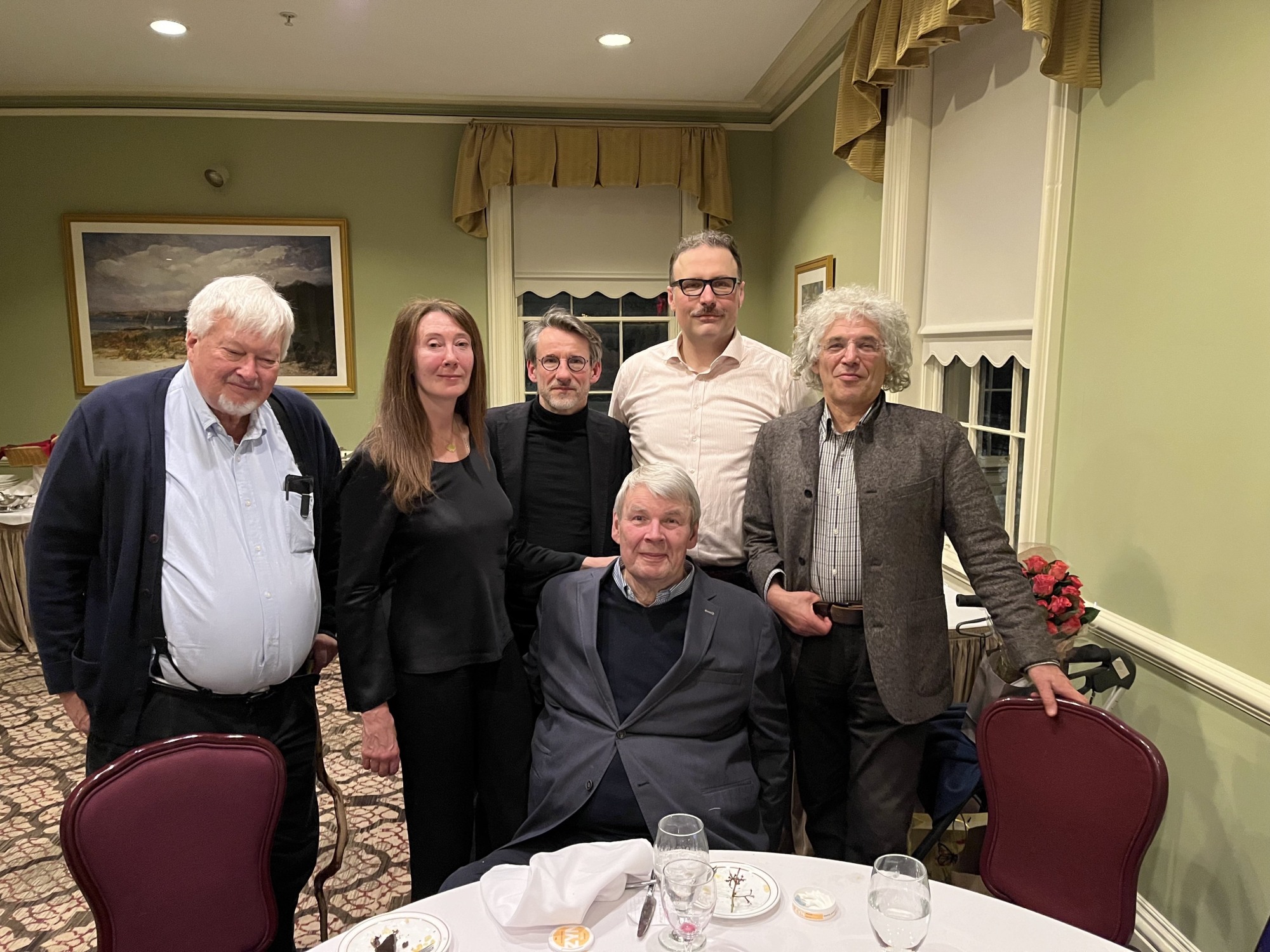People
Our faculty are leading scholars in the field, who produce innovative scholarship and teaching. Their expertise covers a wide range of topics in Russian and Polish culture and intellectual history from the eighteenth to the twenty-first century, including literature, theater, film, art, and political movements, as well as Czech linguistics.
People
Our faculty are leading scholars in the field, who produce innovative scholarship and teaching. Their expertise covers a wide range of topics in Russian and Polish culture and intellectual history from the eighteenth to the twenty-first century, including literature, theater, film, art, and political movements, as well as Czech linguistics.
-
Lynne deBenedette
Associate Teaching Professor of Slavic Studies -
Svetlana Evdokimova
Professor of Slavic Studies , Chair of the Department of Slavic Studies -
Fabrizio Fenghi
Associate Professor of Slavic Studies, Director of Undergraduate Studies -
Masako Fidler
Professor of Slavic Studies -
Vladimir Golstein
Professor of Slavic Studies -
Jolanta Lion
Visiting Lecturer of Slavic Studies -
Christy Monet (Brandly)
Presidential Postdoctoral Fellow -
Michal Oklot
Associate Professor of Slavic Studies, Director of Graduate Studies -
Ethan Pollock
Abbott Gleason University Professor of History; Professor of Slavic Studies, Dean of the College -
Victoria Richter
Adjunct Lecturer in Russian -
Maria Taroutina
Assistant Professor of Slavic Studies
Professors Emeriti
-
Linda Cook
Professor Emerita of Political Science and Slavic Studies
IN MEMORIAM
-
Alexander Levitsky
-
Spencer Golub
Professor Alexander Levitsky passed away on September 24, 2024. Alexander Levitsky was born in Prague in 1947 in the family of Russian musicians. In 1964 he became a political refugee (by crossing two international borders literally on foot) and asking for political asylum in France, at the age of 17. In his own words, he could no longer bear to live in the world of ubiquitous lies and dissimulation. Shortly after, he emigrated to the USA. He earned his BA from the University of Minnesota in 1970 and his doctorate in Slavic Studies from the University of Michigan, Ann Arbor, in 1977.
Levitsky joined the Brown faculty in 1975 and spent the rest of his career at Brown teaching all periods of Russian and Czech literature for 45 years, till his retirement in 2020. He has also held semester-long teaching engagements by invitation from Charles University, Prague, and Harvard University. For many years he also served as Chair and as DGS. After retirement he moved to Sweden with his wife. But even when seriously ill and retired, he generously offered informally series of lectures for our graduate students over zoom.
Prof. Levitsky’s scholarly career as a specialist in eighteenth-century and modern Russian literature was lengthy and impactful. A scholar of enormous range and depth, he published dozens of books, anthologies, and edited volumes, nearly 100 journal articles and book chapters, delivered hundreds of conference papers and invited lectures, and was viewed as a luminary in the area of the 18 century Russian literature by his colleagues from around the world. He was appointed as a leading editor of Derzhavin’s Collected Works in 7 volumes published by the Russian academy of Sciences.
An engaging teacher, Levitsky taught series of popular courses at Brown, including “Fantasy and Science Fiction” course, a topic that was his particular passion in addition to the 18th century Russian literature. One of his students recalls his words: "The main thing about this type of literature is that it can trigger something that I believe makes us human, trigger that element of idealism that allows you to move beyond your present-day reality. A true work of fantasy continues breaking down preconceived spaces through providing new shifts, new settings, new labyrinths of understanding."
Students recall Levitsky not only as an erudite scholar and a brilliant mind, but as a warm and kind human being, and enormously generous mentor. He inspired many of his colleagues and graduate students and served on the dissertation committees in various capacities of nearly 50 dissertations.

In Marston Hall, July 2007
https://www.brownalumnimagazine.com/articles/2007-07-11/fantastic-voyage

(Left to Right): Professor Emeritus Robert Mathiesen, Professor Svetlana Evdokimova, Professor Michal Oklot, Professor Emeritus Alexander Levitsky, Professor Fabrizio Fenghi, and Professor Vladimir Golstein. (March 2024)
His interests spanned from biology to numismatics, to history, art, panting, music, sci fi films, cars (esp. Volvo), and, of course literature, which was for him, as one of his students notes, “at once a matter of the senses and a means of social change.”
His enormous library reflected his eclectic and expansive interests and, as one colleague observed, it included books on almost any imaginable subject. Levitsky is fondly remembered by the Department of Slavic Studies faculty, his colleagues, and students for his sense of humor, his kindness, his formidable intellectual presence, his unique hospitality, and his sonorous voice reciting his favorite 18th century poet, Derzhavin.